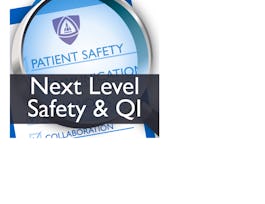COURSE 5 of 7. This course is designed to introduce you to the changes an organization will need to make to succeed in value-based care and payment. In previous courses in this specialization, you were introduced to the Accountable Care Learning Collaborative (ACLC). One of the models you will explore is the ACLC’s Accountable Care Atlas model. This model, along with additional information from the Health Care Payment Learning and Action Network (HCP-LAN), will help you begin to understand the challenges and rewards of transitioning to value-based care. In Module 2, you will explore those concepts through the lenses of three types of healthcare organizations, tying those examples back to types of value-based contracts. You will also explore strategies to address some of the challenges in the journey to value-based care. In the summative assignment, you will demonstrate your knowledge by envisioning that you have been invited to speak as part of a roundtable discussion on the challenges of transitioning to value-based care and payment. You will develop an outline of talking points in which you will share why VBC is valuable, the challenges and strategies that might address them, and where you see opportunities for progress in the transition to value-based care.

Offrez à votre carrière le cadeau de Coursera Plus avec $160 de réduction, facturé annuellement. Économisez aujourd’hui.


Value-Based Care: Organizational Competencies
Ce cours fait partie de Spécialisation Value-Based Care


Instructeurs : Susie Gronseth
1 536 déjà inscrits
Inclus avec 
(19 avis)
Compétences que vous acquerrez
- Catégorie : Healthcare Quality
- Catégorie : Healthcare Management
- Catégorie : Patient Care
- Catégorie : value-based care
- Catégorie : Organizational Structure
Détails à connaître

Ajouter à votre profil LinkedIn
2 devoirs
Découvrez comment les employés des entreprises prestigieuses maîtrisent des compétences recherchées

Élaborez votre expertise du sujet
- Apprenez de nouveaux concepts auprès d'experts du secteur
- Acquérez une compréhension de base d'un sujet ou d'un outil
- Développez des compétences professionnelles avec des projets pratiques
- Obtenez un certificat professionnel partageable


Obtenez un certificat professionnel
Ajoutez cette qualification à votre profil LinkedIn ou à votre CV
Partagez-le sur les réseaux sociaux et dans votre évaluation de performance

Il y a 3 modules dans ce cours
The complexities of value-based care and payment models can be overwhelming. While consultants are ready to help healthcare organizations transition from volume to value, this course is your introduction to understanding how you can implement VBC in the real world. If you participated in the prior four courses, the information you explored—from the historical in Course 1 that explains the VBC imperative to the types of VBC payment models in Course 4—has helped you establish a foundation for understanding how to transition from a traditional fee-based model to a more innovative, value-based model. In this module, you will activate that foundation in examining the changes your organization will need to make (think: build organizational competencies) to succeed in value-based care and payment. In the previous course, you were introduced to the Accountable Care Learning Collaborative (ACLC). One of the models you will explore in this course is the ACLC’s Accountable Care Atlas model. This model, along with additional information from the Health Care Payment Learning and Action Network (HCP-LAN), will help you begin to understand the challenges and rewards of transitioning to value-based care. Note: If you have not completed Course 4 and have little to no experience with value-based care payment models, it is highly recommended that you complete Course 4 before proceeding with Course 5. Remember, as you read or hear terms or concepts that are new to you, have your digital (Word doc) or analog (paper) notepad handy to write them down. At any time, you can use your favorite search engine to learn more. Be a self-directed learner!
Inclus
9 vidéos1 lecture1 devoir1 sujet de discussion1 plugin
The previous module consisted of a detailed examination of the Accountable Care Atlas and the organizational competencies and phases it posits for transitioning to VBC. In this module, you will explore those concepts through the lenses of three types of healthcare organizations, tying those examples back to the types of value-based contracts discussed in Course 4. You will also explore a few topics not included in the Atlas, but worth calling out, and we’ll discuss some of the challenges along the journey to value-based care. Remember, as you read or hear terms or concepts that are new to you, have your digital (Word doc) or analog (paper) notepad handy to write them down. At any time, you can use your favorite search engine to learn more. Be a self-directed learner!
Inclus
6 vidéos1 lecture1 devoir1 sujet de discussion
In this course, you have explored how to implement VBC in “the real world” by examining the changes organizations will need to make (think: build organizational competencies) to succeed in value-based care and payment. As with any organizational change, you have to keep one eye on the end goal, in this case, the rewards in transitioning to value-based care. An equal imperative is to keep front and center the challenges your organization is likely to experience in transitioning to/maintaining a value-based care model. Remember: when armed with thoughtful awareness of and an intentional strategy for how to address a challenge, that challenge pivots from obstacle to opportunity. Whether this is the only course you are taking or if you are pursuing the comprehensive program to earn a certificate, you should be able to work with others to apply what you are learning to a current or future work context, and to help those who are just beginning to explore value-based care. For this summative assignment, you will envision that you have been invited to speak as part of a roundtable discussion on the challenges of transitioning to value-based care and payment. The roundtable session will involve representation from a variety of healthcare organizations. Your task in this summative assignment is to develop an outline of talking points. Your points can be from the perspective of your current practice or, if you are employed in another type of healthcare organization or perhaps seeking employment in a practice or other organization, you can select a local or create a fictional small practice or patient-centered medical home (PCMH) practice for your example.
Inclus
1 évaluation par les pairs1 plugin
Instructeurs

Offert par
Recommandé si vous êtes intéressé(e) par Public Health

University of Minnesota

Northeastern University

Johns Hopkins University

Imperial College London
Pour quelles raisons les étudiants sur Coursera nous choisissent-ils pour leur carrière ?




Avis des étudiants
Affichage de 3 sur 19
19 avis
- 5 stars
78,94 %
- 4 stars
15,78 %
- 3 stars
5,26 %
- 2 stars
0 %
- 1 star
0 %
Révisé le 7 avr. 2021

Ouvrez de nouvelles portes avec Coursera Plus
Accès illimité à plus de 7 000 cours de renommée internationale, à des projets pratiques et à des programmes de certificats reconnus sur le marché du travail, tous inclus dans votre abonnement
Faites progresser votre carrière avec un diplôme en ligne
Obtenez un diplôme auprès d’universités de renommée mondiale - 100 % en ligne
Rejoignez plus de 3 400 entreprises mondiales qui ont choisi Coursera pour les affaires
Améliorez les compétences de vos employés pour exceller dans l’économie numérique
Foire Aux Questions
Access to lectures and assignments depends on your type of enrollment. If you take a course in audit mode, you will be able to see most course materials for free. To access graded assignments and to earn a Certificate, you will need to purchase the Certificate experience, during or after your audit. If you don't see the audit option:
The course may not offer an audit option. You can try a Free Trial instead, or apply for Financial Aid.
The course may offer 'Full Course, No Certificate' instead. This option lets you see all course materials, submit required assessments, and get a final grade. This also means that you will not be able to purchase a Certificate experience.
When you enroll in the course, you get access to all of the courses in the Specialization, and you earn a certificate when you complete the work. Your electronic Certificate will be added to your Accomplishments page - from there, you can print your Certificate or add it to your LinkedIn profile. If you only want to read and view the course content, you can audit the course for free.
If you subscribed, you get a 7-day free trial during which you can cancel at no penalty. After that, we don’t give refunds, but you can cancel your subscription at any time. See our full refund policy.

